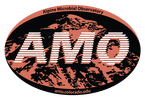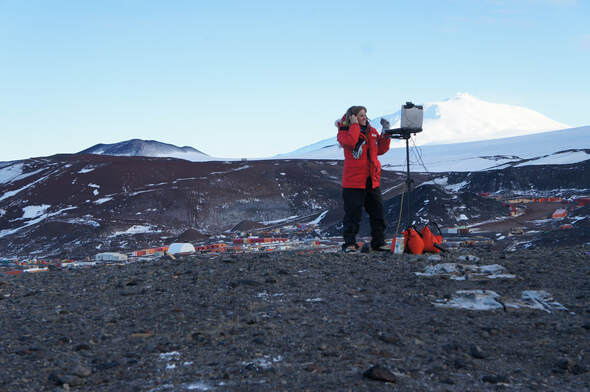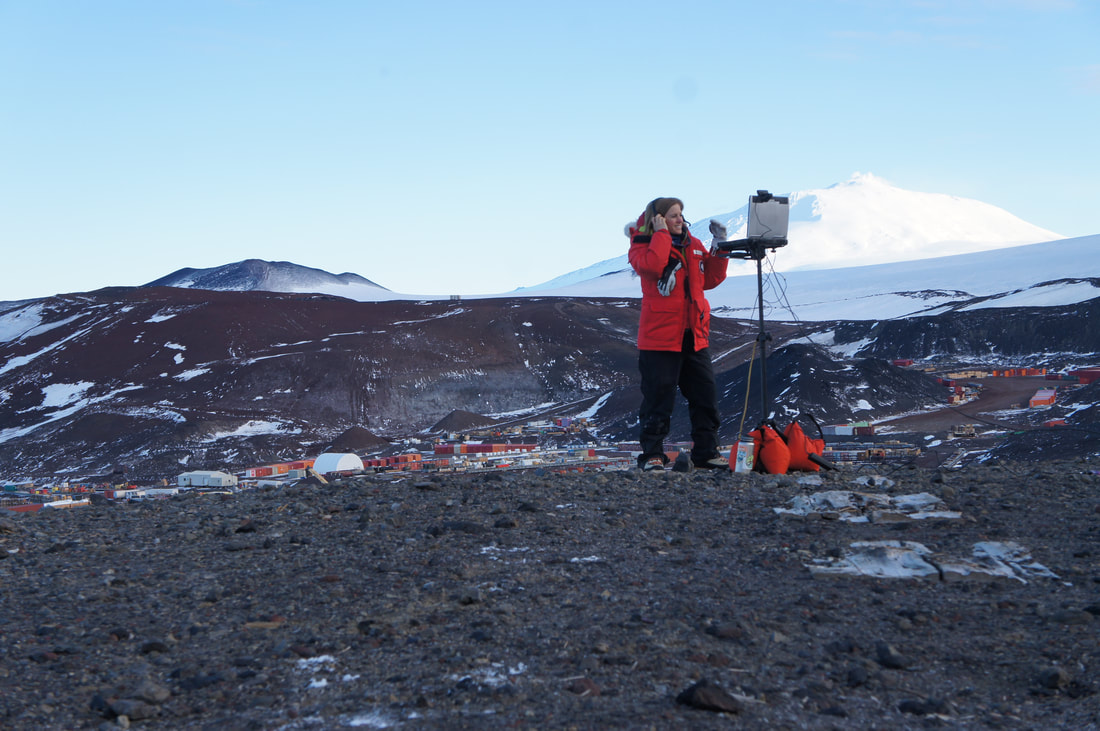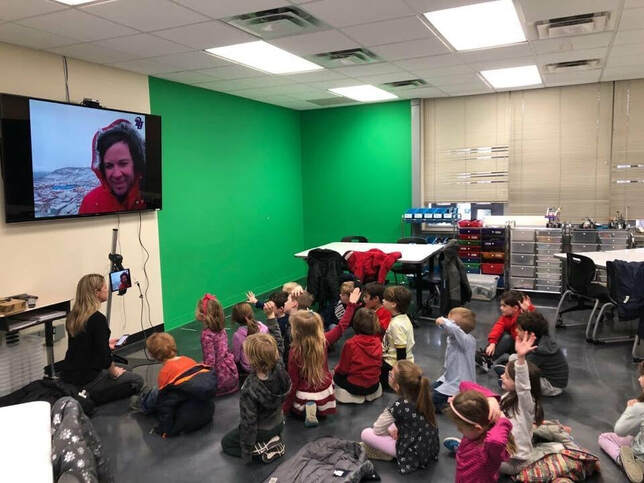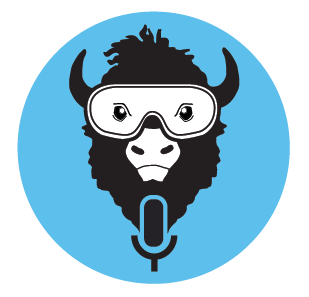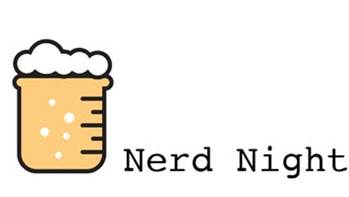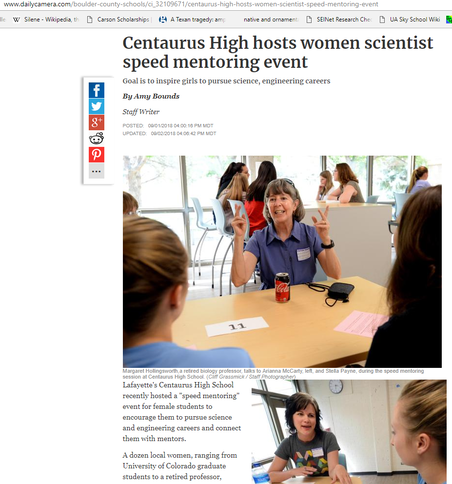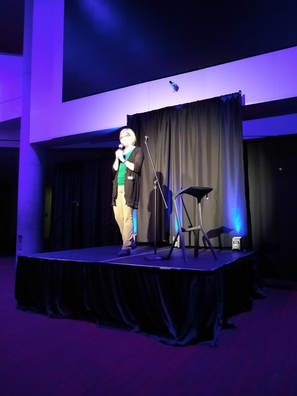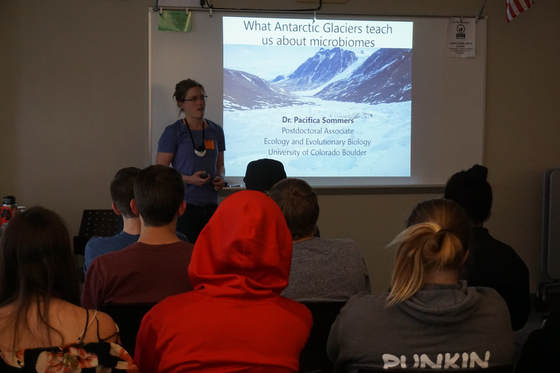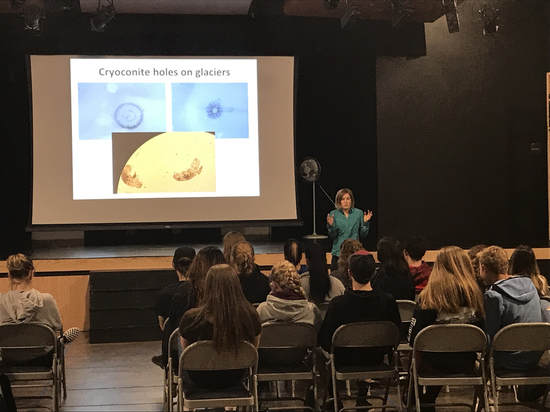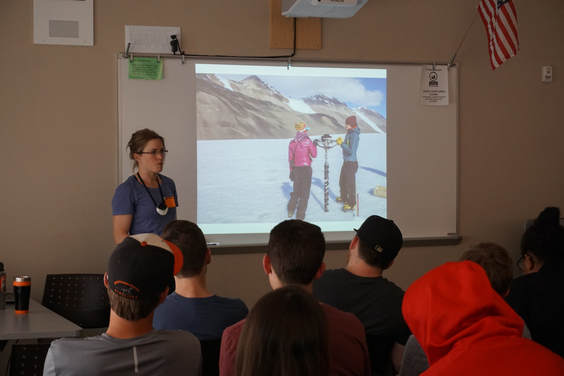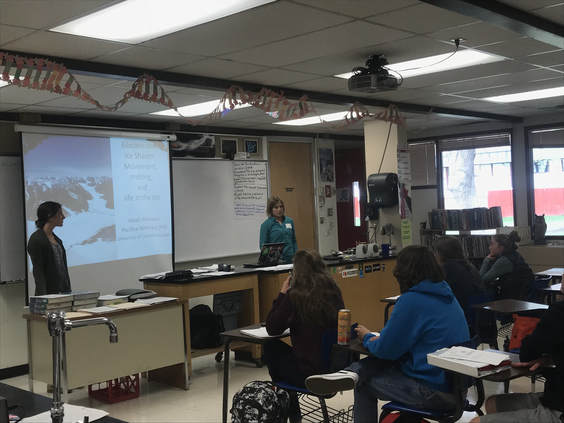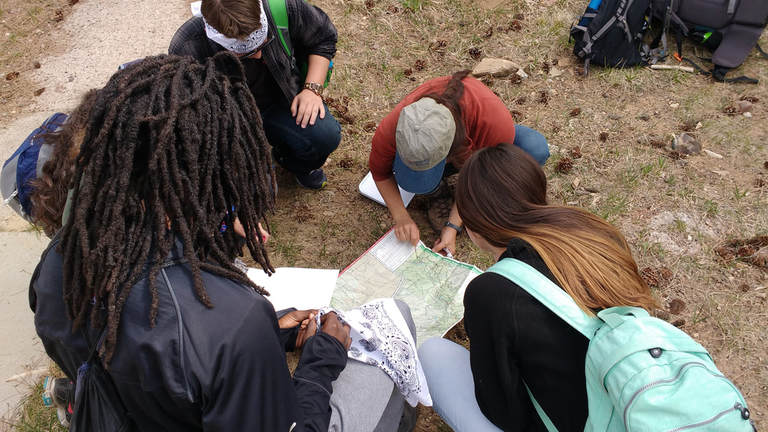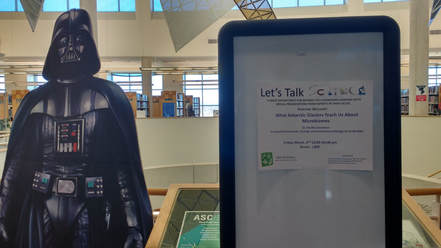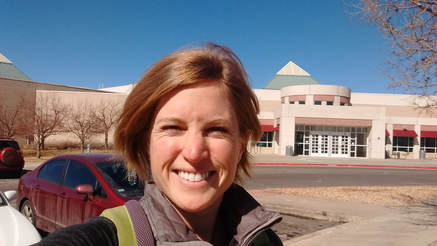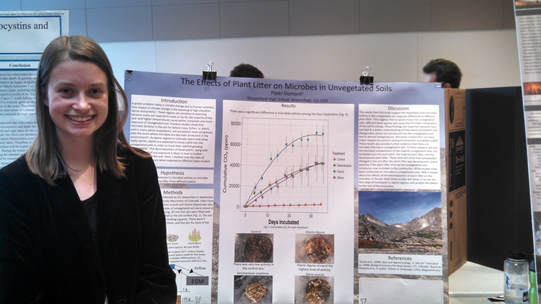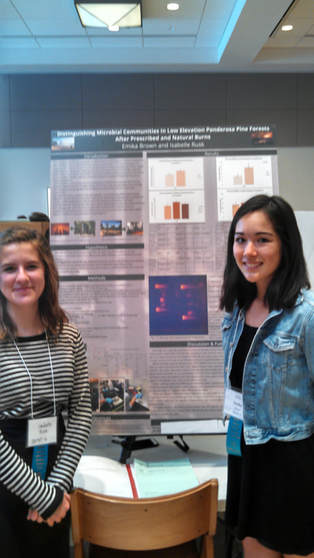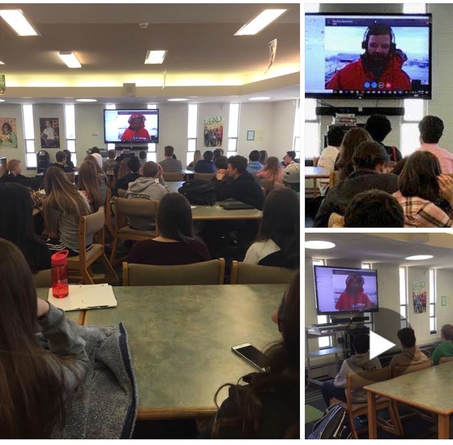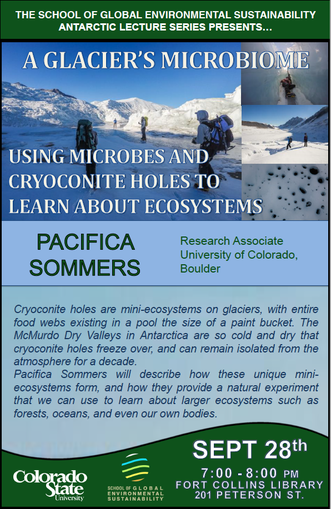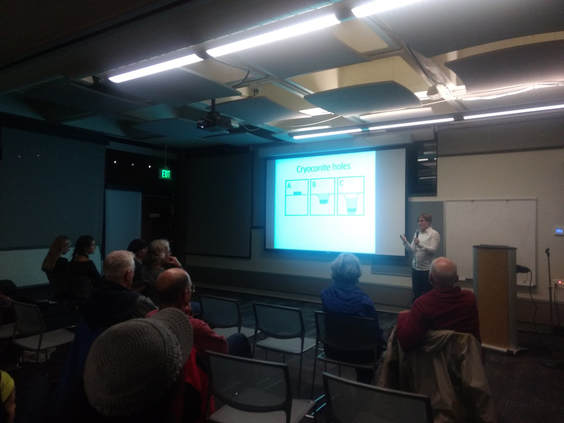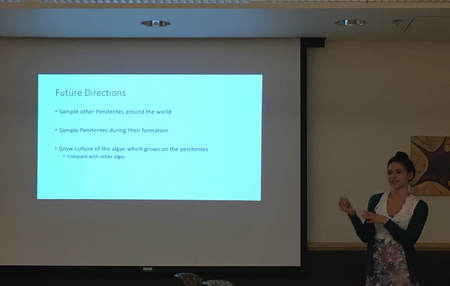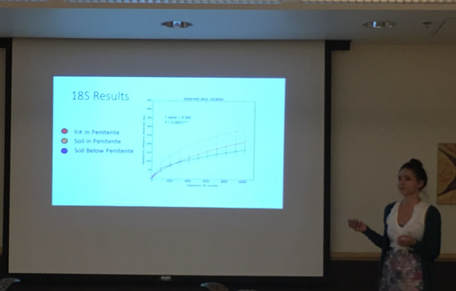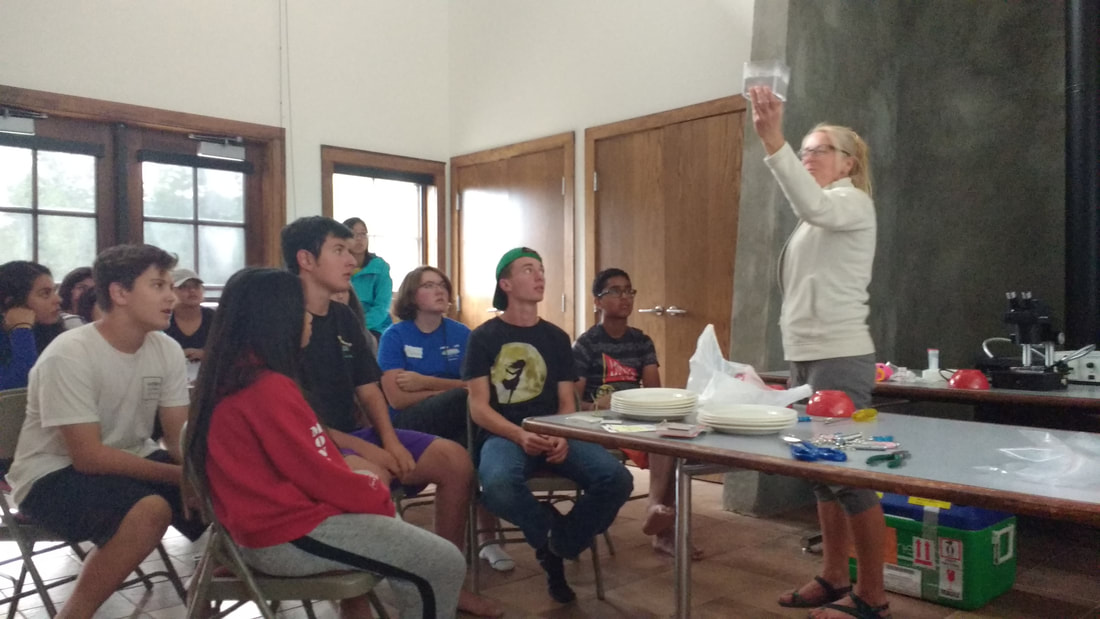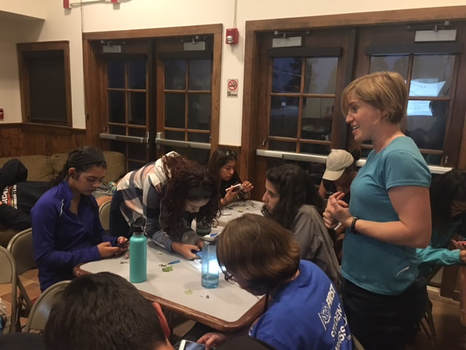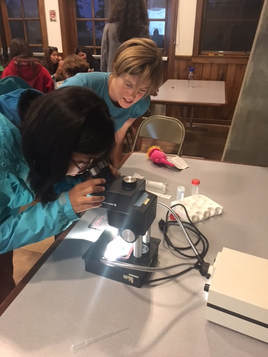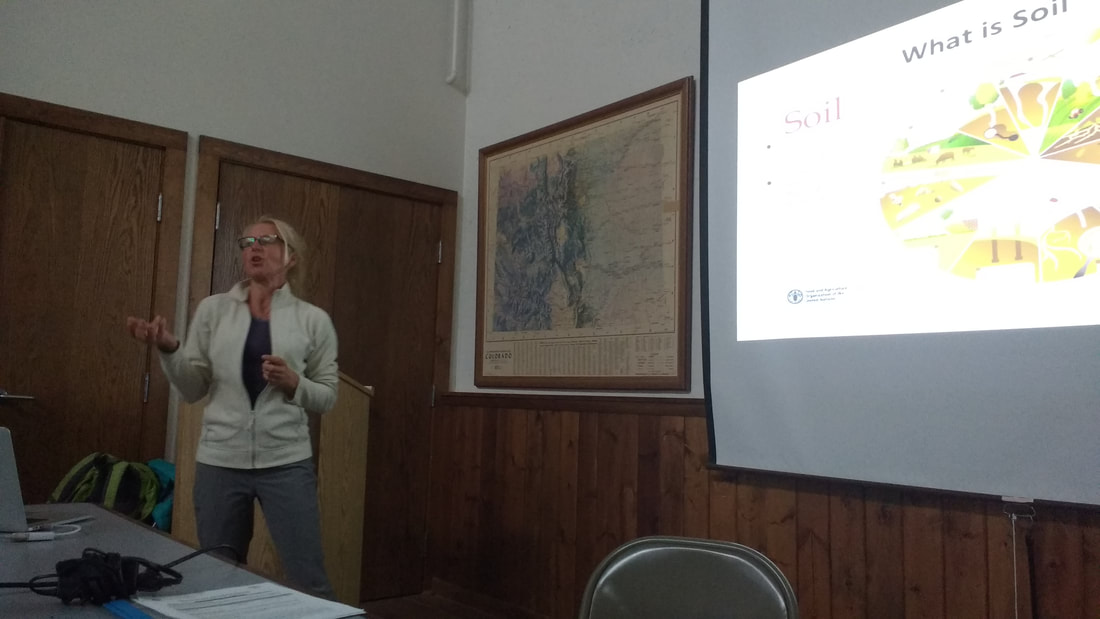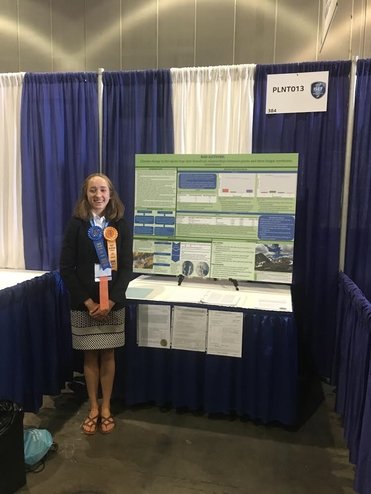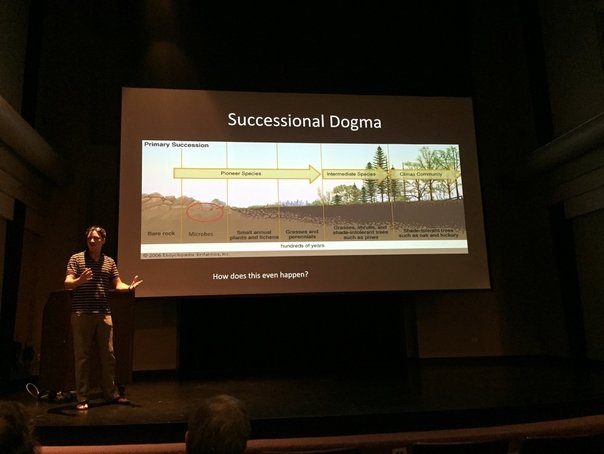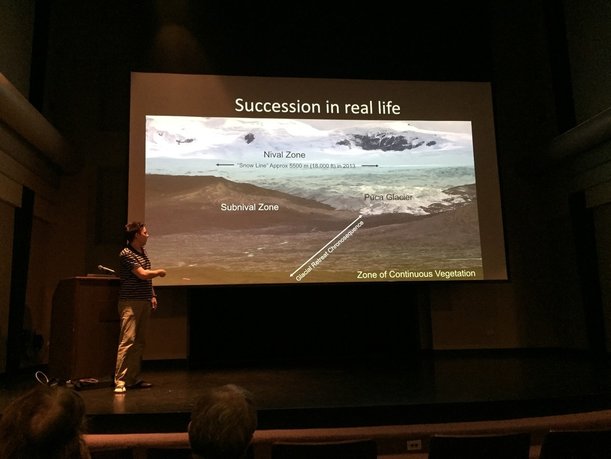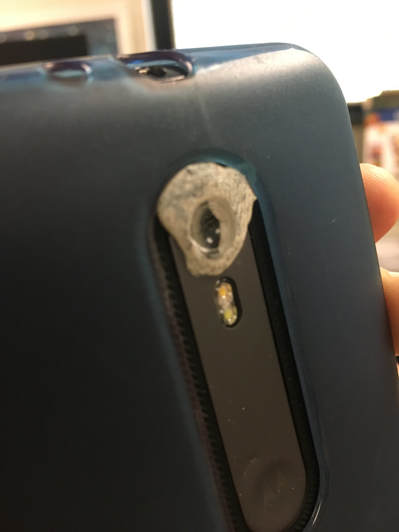|
Video made by Cliff Bueno de Mesquita for the Indian Peaks Wilderness Alliance about plants moving into unvegetated soils as climate changes and their interactions with soil microbes. www.youtube.com/watch?v=Jh2OybvLSnw&feature=youtu.be
Pacifica visited Fireside Elementary in Louisville, Colorado. She had Skyped with their fifth grade from Antarctica a month before, and was able to share photos and stories from our fieldwork and answer questions in person with approximately 180 students from 3rd-5th grades.
Pacifica and Adam were able to talk with students about our research with cryoconite holes and life in general while working down in Antarctica. Between the two of them, Pacifica and Adam talked with students from a wide range of ages (kindergarten to college) and locations (Midwest, Southwest, and Rocky Mountains).
Pacifica appears as the guest interviewee in Episode 13 of the podcast Buffs Talk Science, the audio companion to the blog Science Buffs (www.sciencebuffs.org). You can hear her conversation with hosts Alison Gilchrist and Graycen Wheeler (and other episodes!) on iTunes, Stitcher, or online at www.buffstalkscience.com
Pacifica gave a 20 minute talk on her research in Antarctica – and showed real graphs of real data – in a local bar, the Outback Saloon. The presentation was part of the monthly Nerd Night event hosted by the Outback, and organized by graduate students at CU Boulder. Approximately 50 people attended.
Pacifica participated in a “speed mentoring” after-school event at Centaurus High School in Lafayette, CO, for high school girls to meet scientists from CU Boulder, Google, and other science and technology careers. The event was organized by the nonprofit 500 Women Scientists, and as covered by the local newspaper, The Boulder Daily Camera (image below).
Pacifica performed a 10 minute stand-up comedy set in front of a sold-out paying audience of 120 members of the public – about her research on cryoconite holes, and specifically some of the microscopic animals that live inside them! Her set was titled, “How to kill a water bear.” And yes, the audience even laughed at some of her jokes. The performance was the culmination of the three-week Science Riot workshop, in which scientists to adapt their professional material for stand-up.
Lara presented her research to an audience of astrobiologists at the NASA-sponsored Astrobiology Graduate Conference (AbGradCon). AbGradCon is an annual meeting of graduate students conducting astrobiology research from across a spectrum of disciplines- biology, geology, astrophysics. The event this year, from June 4-8, was hosted by the Georgia Institute of Technology in Atlanta, GA. Lara's talk was titled "Microbial Activity and Adaptation at Extreme Elevations on Atacama Volcanoes: the Best Martian Analogue on Earth?"
To watch her talk click here. On the 3rd and 4th of May Pacifica introduced 349 students in the towns of Ouray, Montrose, and Cortez, CO, to our research in Antarctica and preliminary results - as well as how to do science in Antarctica. She was joined by her sister, Aleah Sommers, a doctoral candidate in Civil Engineering at CU Boulder, who will defend her dissertation at the end of the month. The visit to the schools was organized by The Pinhead Institute, a nonprofit based in Telluride, CO, that connects local students to scientists. In addition to the photos, check out the coverage of our visit in the Montrose Press! [Reprint]
Pacifica shares the invisible microscopic world around us with high school students in Tucson4/25/2018
Pacifica assisted with guiding the 37 students from Flowing Wells High School at the UA Science: Sky School program, near Tucson, AZ, in doing outdoor science. As part of the experience, she spent two hours introducing them to her research on Antarctic microbes and helping them transform their cell phones into microscopes while they awaited their turn to look through enormous telescopes.
Pacifica visited the Westminster campus of Front Range Community College (FRCC) to discuss our Cryoconite Project. She was the featured speaker for the weekly gathering of the FRCC Biology Club and had a great time fielding questions from roughly 30 students.
This past year Cliff and Eli have been involved as science mentors for high school students in the Boulder Valley School District Science Research Seminar program. Students learn about the scientific method in class, and work with science mentors outside of school to complete research projects. Cliff advised Piper Dumont from Broomfield High School who studied the effects of plant litter on microbial respiration in unvegetated soils. Eli advised Emika Brown and Isabelle Rusk from Fairview High School who compared microbial community composition and soil properties between prescribed burns and recent natural wildfires. These students did a great job working in the lab this year as well as presenting their findings at the science fair!
Adam skyped with 3 different classes of high school biology students at University High School in Normal, IL.
The School of Global Environmental Sustainability at Colorado State University in Fort Collins, Colorado hosts a public lecture series on Antarctica (link). At the Fort Collins Public Library, Pacifica presented our cryoconite research to around 30 members of the public.
Alex gave her talk for the Biological Science Initiative (BSI) symposium. As a BSI scholar Alex helped work on the Llullaillaco project. In her talk she discussed our work with penintentes and her role in helping to analyze the sequencing data. Great job Alex!
Dorota and Pacifica held a workshop for 14 high school students at the University of Colorado Mountain Research Station. Together they gave a presentation on soil ecology and guided students through making their own cell phone microscopes to explore soil meiofauna (nematodes and tardigrades!) as well as the rest of the microscopic world around them! This event was in support CU's Science Discovery (CUSD) Mountain Research Experience.
Isabella Bowland, a rising high school senior at Boulder’s Fairview High School, did an outstanding job representing the Schmidt and Suding Labs at the International Science and Engineering Fair (ISEF) in May. Last year, Isabella took a class called the Science Research Seminar, in which students go through the scientific process and find science mentors to work with throughout the year. Isabella worked in the Schmidt Lab with Cliff Bueno de Mesquita on the Moving Uphill project, doing staining and microscopy of alpine plant roots collected across a high-elevation landscape. After being awarded best in plant sciences at the regional science fair in Boulder, Isabella advanced to the main ISEF event in Los Angeles, where she continued to display a thorough understanding of alpine plant-fungal interactions, and was awarded best in plant sciences. Congratulations Isabella! We are proud!
Jack was one of a few researchers to present for a fundraising effort in support of the Sibinacocha Watershed Project. The Sibinacocha is an unique high elevation ecosystem that is currently threatened by a number of factors including climate change, development, and tourism. The Watershed Project is a non-profit conservation organization that is working to protect the ecosystem. This is where our Peru site is located. If you are interested in donating please follow the link.
Pacifica taught a class at The Gizmo Dojo in Broomfield, CO. Using only a cell phone, lens from a laser pointer, and some puddy, each member of the class was able to see the microscopic world all around them!
Hosted by the CU Women in Science and Engineering (WISE) organization, the event included a workshop focusing on science communication, and several talks from researchers, one of which was Pacifica. Selected from many applicants Pacifica was invited to present our research from Antarctica in a TED talk style presentation.
|
